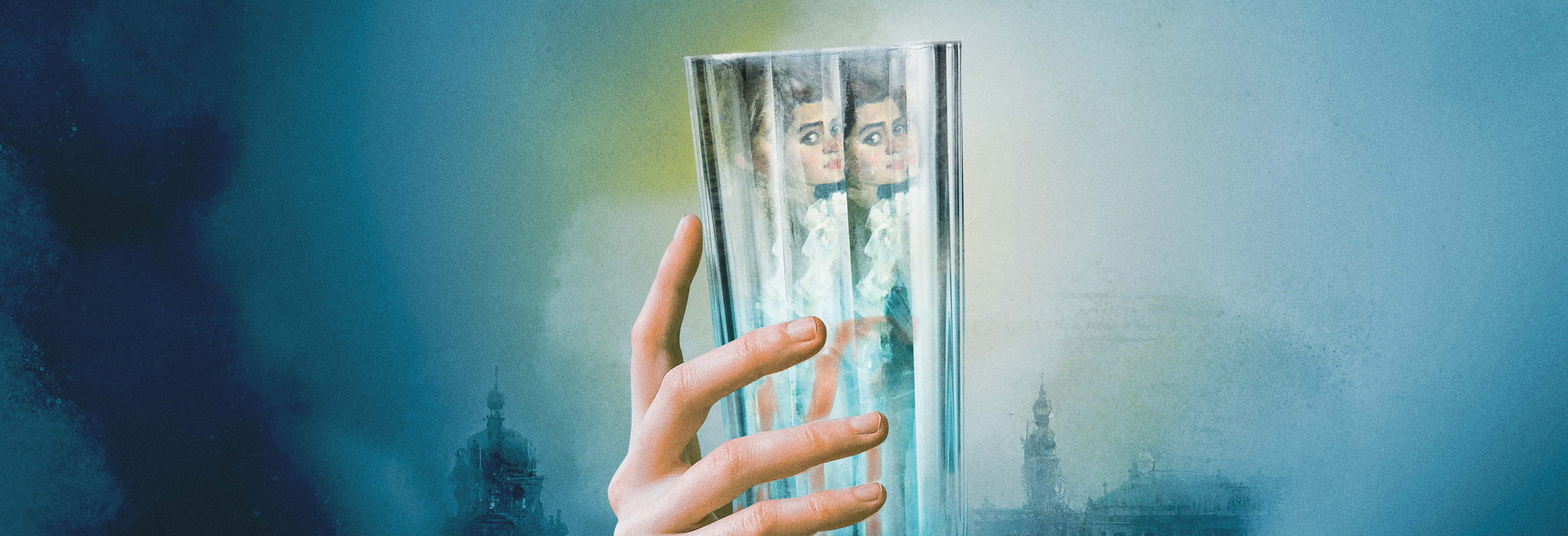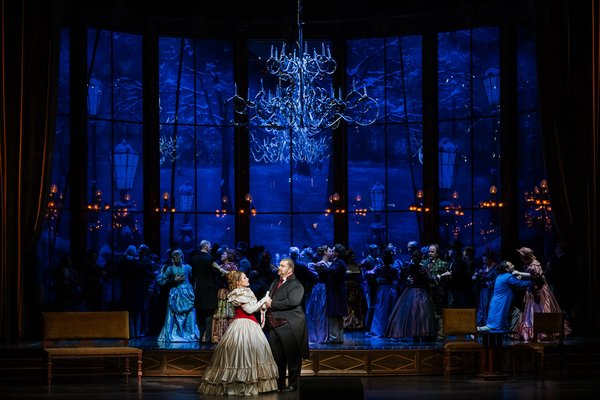
ARABELLA
8 February 2024, 6 p.m.
In Brief
Opera in three acts, in German, with Hungarian, English, and German subtitles
After its world premiere, Arabella by Richard Strauss, a work reminiscent of Der Rosenkavalier, was almost immediately staged by the Hungarian State Opera, if only for a couple of performances at the turn of 1934/35. Now, the 2012 Géza Bereményi production is reimagined, but the revival keeps the last set created for the Opera House by legendary designer Attila Csikós as well as costumes by Rita Velich. The opera actually has nothing to do with Der Rosenkavalier, only the Viennese setting and the famous ball tradition of the imperial city are the same at the most. The story is not about elegiac resignation, about the end of life, either but consolation: you can still have a partner worth waiting for, and that love can bring together those who, although coming from different background, are worthy of each other. An extraordinary example of Strauss’ conversational style and a story about a city girl waiting for the One and Only, namely an explosive South Slavic man who is involved in the only bear attack in the opera oeuvre. The Strauss opus, which is the German master's last joint work with his eternal librettist, Hofmannsthal, is reimagined for stage by Sylvie Gábor.
Details
- Location
- Hungarian State Opera
- Date
- Feb. 8, 2024
- Start time
- 6 p.m.
- End time
- 10 p.m.
Synopsis
Act One
The early 1860s have brought hard times on the Viennese Waldner family, who enjoyed some better days not long ago. It is of little significance that they bear the prestigious title of count when the debauched father has gambled away the last pennies of their former wealth. They can no longer afford to maintain their upper-class household anymore, and the only hope for the family, after moving to a hotel, seems to be the advantageous marriage of the beautiful Arabella, the elder daughter, while her sister Zdenka, who adores Arabella, is forced to dress as a boy by the name of Zdenko. When the curtain rises the girls’ mother is interrogating a fortune teller, whose cards predict fortune: a wealthy suitor to Arabella, and it is only the younger sister who can threaten this much anticipated marriage. There are many suitors around Arabella in the ball season: three gallant young counts and an army officer, Matteo, who is passionately in love with her and whose case is championed by Zdenka – who is more and more attracted to the young man. What is more, seeing Arabella’s indifference and rejection and the officer’s growing despair, Zdenka writes encouraging love letters to Matteo – of course, in her sister’s name. Arabella is waiting for the “Right Man” who has been destined to her, and perhaps she has just caught a glance of this man who is as yet unknown to her but so desirable.
Although she is not aware of it, the audience can soon learns that the handsome stranger is the subject of Count Waldner’s desperate plans for his daughter’s marriage. The retired cavalry officer wrote a letter about his difficult situation to a former fellow officer Mandryka, who was immensely wealthy, and attached Arabella’s portrait to his letter. But the letter, which was sent to Croatia, reached his heir, the young Mandryka, who immediately fell in love with the girl he saw in the portrait. The father welcomes the potential son-in-law with overwhelming joy, all the more so as Mandryka offers a generous loan to the old gambler immediately. They decide to arrange the formal encounter of Arabella and Mandryka at the traditional ball of Vienna fiaker-owners on Shrove Tuesday. As if she were aware of these plans, Arabella dreams of her future while preparing for the ball excitedly.
Act Two
When Mandryka and Arabella finally meet at the Fiakerball, they both see their dreams come true. The charming, graceful and elegant Arabella impresses the man, while the girl, recognising in Mandryka the man she saw in the street earlier, listens devotedly to him recounting a life in the country, the first wife who died young, and the remote folk tradition that the girl who accepts the suitor’s proposal offers clear water to her future husband. Arabella, queen of the ball, is now certain that she has found the man for her and spends the rest of the night saying good-bye to her former suitors, dancing with them one after the other. But Matteo threatens to commit suicide – and not for the first time –, which forces the loving and scared Zdenka to take a bold step: she invites the exulted officer to a secret rendezvous in her sister’s name and gives him the key of one of their hotel rooms. Mandryka accidently overhears Zdenka and Matteo’s conversation, and the misunderstanding is complete when Arabella prepares to leave for the hotel saying she has a lot to arrange. The newly-engaged fiancé creates a spectacular scandal: he has a row with Arabella and her whole family, and finally leaves the ball, his arm adorned with the frivolous favourite of the ball, Fiakermilli.
Act Three
The deceived Matteo happily leaves the darkened hotel room where he has been welcomed by Zdenka, now without the boy’s clothes, instead of Arabella. He is most surprised to come across Arabella in the lobby of the hotel and she does not seem to know anything about their rendezvous of the past hour. The girl’s usual reserve and indifference makes the passionate young man increasingly furious. Moreover, Mandryka, who arrives with the Waldners, misunderstands again the situation, which looks undeniably compromising. The two suitors are about to dash at each other when Zdenka, now dressed as a girl, appears and stops them, and explains the situation with an honest confession. Mandryka admits his mistake and asks Count Waldner for Zdenka’s hand – not for himself but Matteo, who is enthused by the younger girl’s love. All retreat to their rooms, only Mandryka is about to leave, distraught in the belief that he has lost Arabella’s love forever because of his distrust and temper. But he is wrong: Arabella returns bringing a glass of clear water to the happy man.
Gallery
Reviews
"Rita Velich's sumptuous period costumes were already successful at the press preview, and they turned out to be even more beautiful in the atmosphere of the performance. Attila Csikós has long had a way of composing such aesthetic, generous, and eye-catching sets that smell like theatre The ball scene in the second act is simply dazzling! The performance and its finale, with its dreamlike vision of Karlskirche, is truly cathartic."
Attila Boros, Zene Zene Tánc
